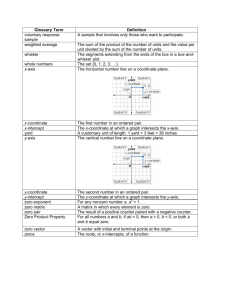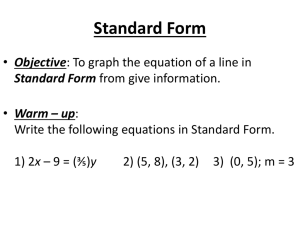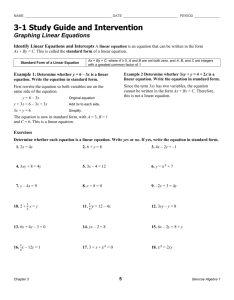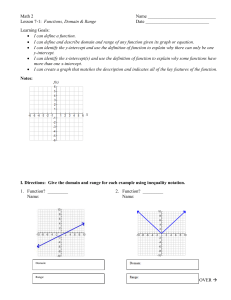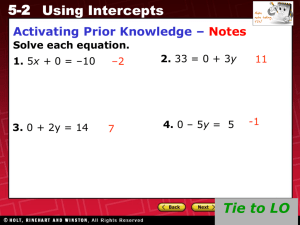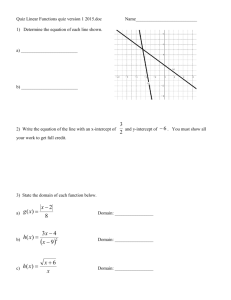X and Y Intercepts: Definition & Examples
advertisement
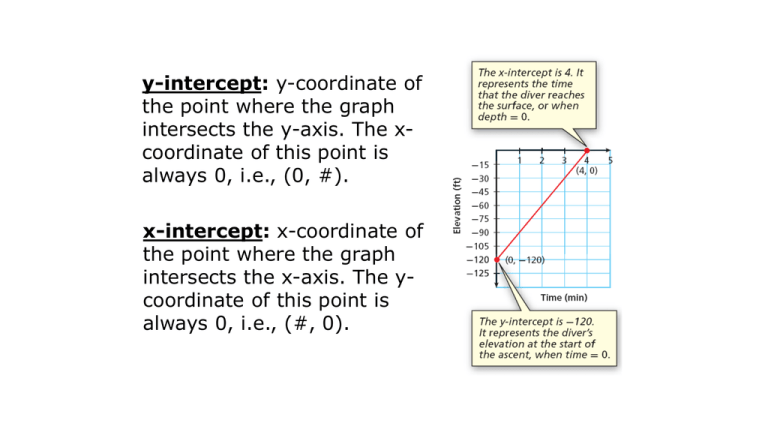
y-intercept: y-coordinate of the point where the graph intersects the y-axis. The xcoordinate of this point is always 0, i.e., (0, #). x-intercept: x-coordinate of the point where the graph intersects the x-axis. The ycoordinate of this point is always 0, i.e., (#, 0). Example 1: Identifying Intercepts Find the x- and y-intercepts. The graph intersects the y-axis at (0, 1). The y-intercept is 1. The graph intersects the x-axis at (–2, 0). The x-intercept is –2. Example 2: Identifying Intercepts Find the x- and y-intercepts. The graph intersects the y-axis at (0, -4). The y-intercept is -4. The graph intersects the x-axis at (3, 0). The x-intercept is 3. Example 3: Identifying Intercepts Find the x- and y-intercepts. The graph intersects the y-axis at (0, 3). The y-intercept is 3. The graph intersects the x-axis at (–2, 0). The x-intercept is –2. Example 4: Finding Intercepts Find the x- and y-intercepts. 5x – 2y = 10 To find the x-intercept, replace y with 0 and solve for x. 5x – 2y = 10 5x – 2(0) = 10 5x – 0 = 10 5x = 10 x=2 The x-intercept is 2. 5x – 2y = 10 5(0) – 2y = 10 0 – 2y = 10 – 2y = 10 y = –5 The y-intercept is –5. Example 5: Finding Intercepts Find the x- and y-intercepts. –3x + 5y = 30 –3x + 5y = 30 –3x + 5(0) = 30 –3x – 0 = 30 –3x = 30 x = –10 The x-intercept is –10. –3x + 5y = 30 –3(0) + 5y = 30 0 + 5y = 30 5y = 30 y=6 The y-intercept is 6. Example 6: Finding Intercepts Find the x- and y-intercepts. 4x + 2y = 16 4x + 2y = 16 4x + 2(0) = 16 4x + 0 = 16 4x = 16 x=4 The x-intercept is –10. 4x + 2y = 16 4(0) + 2y = 16 0 + 2y = 16 2y = 16 y=8 The y-intercept is 8. Remember, to graph a linear function, you need to plot only two ordered pairs. It is often simplest to find the ordered pairs that contain the intercepts. Helpful Hint You can use a third point to check your line. Either choose a point from your graph and check it in the equation, or use the equation to generate a point and check that it is on your graph.




